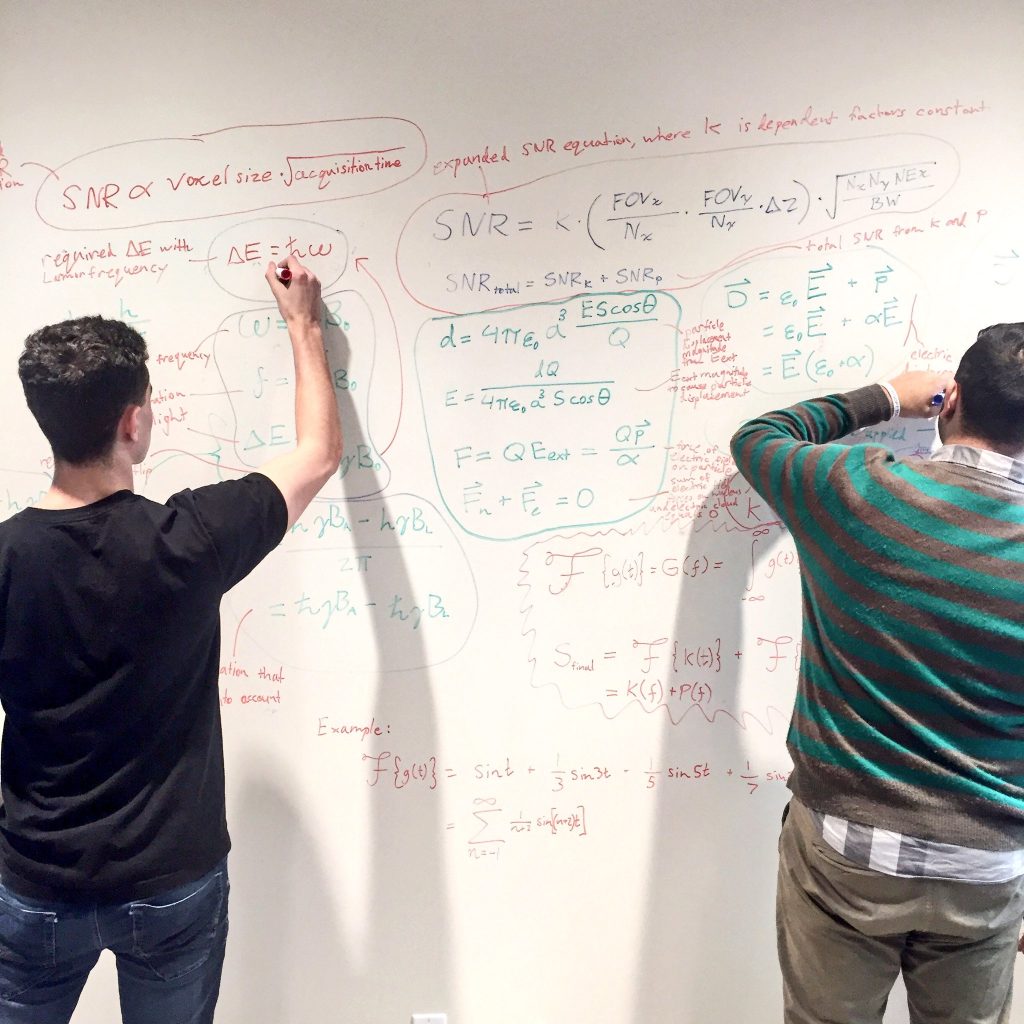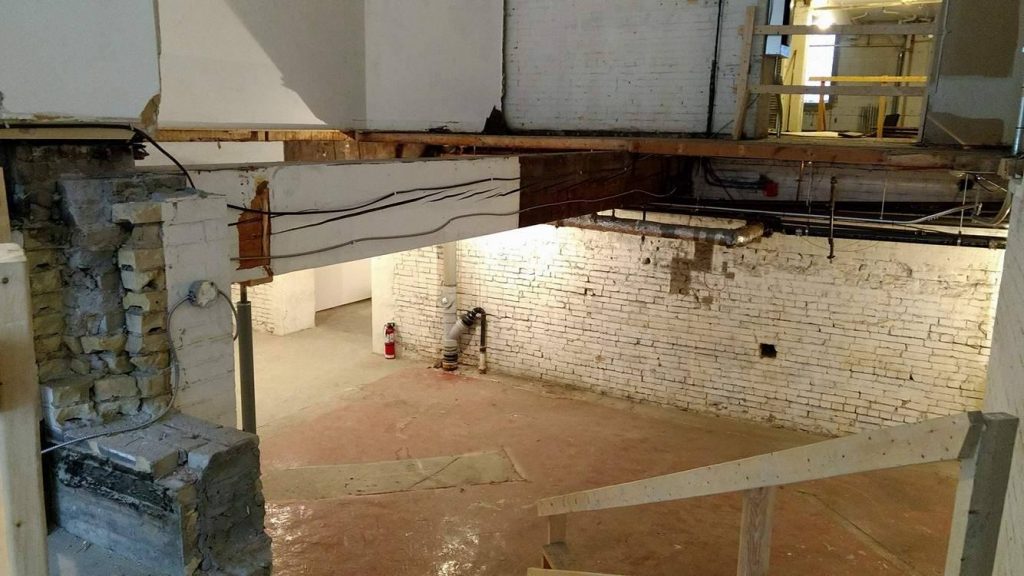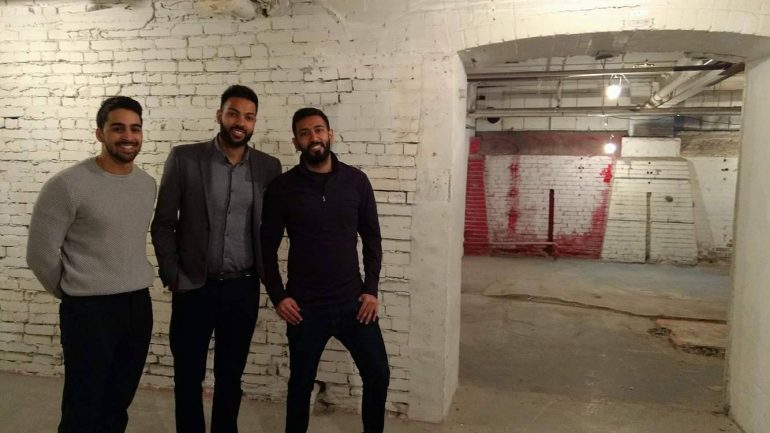As the recent budget announcement shows, Canada is setting itself up to embrace become a world leader in innovation by opening up specialized institutes and doubling down on supporting specific industries like cleantech.
Part of that, too, includes setting up future generations for embracing technology and entrepreneurship — the government is dedicating $2 billion over three years for a Post-Secondary Institutions Strategic Investment Fund, and $73 million to support co-op programs for companies in in-demand fields.
One group of entrepreneurs is hoping to bring that innovation mindset to young people before they begin their path to a career. Co-founders and brothers Navid and Nadeem Nathoo are the driving forces of The Knowledge Society, which is hoping to inspire entrepreneurial and innovative thinking in youth between the ages of 13 to 17.

“[In school] you have to remember how to do a math equation or remember what year World War 2 was, but tomorrow’s world is not necessarily about remembering things. It’s knowing how to find things, knowing how to figure stuff out. It’s this mindset of confidence,” said Navid, the executive director of curriculum development at TKS.
The program runs in Calgary, San Francisco, and Toronto, with plans to make Toronto the home of its flagship location. The team has purchased a 6,000+ square feet, multi-level open space in the heart of the city. As construction continues into September, TKS hopes to build it into a Google-like space that encourages creative thinking with high ceilings and exposed brick. The pair worked with McKinsey & Company through Rahim Noormohamed, their lead partner for McKinsey and a TKS facilitator, to build a vision for how the space will look.

“When you think about the biggest companies in the world — Facebook, Google, Apple, Amazon — and you think about the cultures these companies build, it’s very different from your traditional companies and organizations,” said Nadeem, executive director of growth and partnerships. “The culture you build, and the place you’re in, and the environment and people you’re around, are actually so fundamentally important.”
The program itself has students working in teams to tackle world problems like global poverty, and get a deeper understanding of industries like genomics and cybersecurity. Students are given access to conferences and events and internship opportunities, and learn helpful career skills like optimizing a LinkedIn profile and crafting a strong email.
They’re coming in with this mindset of, ‘I’m not trying to learn information, I’m trying to predict the future. I’m trying to create this future.’” – Nadeem Nathoo, co-founder of TKS
“When I was building my first company, I had to figure out everything by myself. I didn’t know how to get money from a customer. I would be selling my product and I didn’t know if I should take visa, credit card, do I have to give them a receipt? Like how does this work?” said Navid. Navid has built two companies in the past, and his most recent venture, Air Post, was acquired by Box in 2014. “There is a formula. It doesn’t randomly happen and it does start with this mindset and all these skills that kind of have to be forced to develop today because no one teaches you how to fail.”
For his part, Nadeem’s story demonstrates the value of investing in young people’s education early. Nadeem was part of The Next 36’s first-ever cohort, and suggests that this was an important milestone in getting him into entrepreneurship. “We’re focusing a lot younger,” Nadeem said about TKS’ model against what is now NEXT Canada. “A lot of the principles, things that inspired me from the Next 36, we’re bringing into TKS. Because when I was there, I felt that this was probably one of the most pivotal moments of my life experiences. Being a part of the Next 36, I kept thinking, I wish I had this earlier.”
Past mentors that have participated in the program include ATB Financial CEO Dave Mowat, 500 Startups venture partner Patrick Lor, and STEM Learning Lab CEO Gina Cherkowski. For TKS, it’s not about building startups, but building up people. A few of the students include 13-year-old Madhu Manivannan, who is working on mobile technology that can scan security vulnerabilities in IoT devices, and Ben Nashman, who is developing higher-resolution MRI technology.
“Having these students understand that it’s not about what’s happening today, it’s about what you can do about it in the future that matters. So they’re coming in with this mindset of, ‘I’m not trying to learn information, I’m trying to predict the future. I’m trying to create this future,’” said Nadeem.


